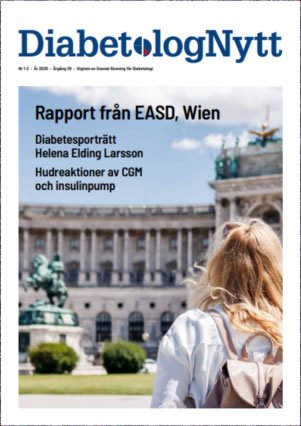From Reuters Health Information
Human Study Re-Ignites Debate Over Controversial Diabetes ’Cure’
NEW YORK (Reuters Health) Aug 09 – A controversial experimental cure for type 1 diabetes, using a tuberculosis vaccine invented nearly a century ago, appeared to temporarily vanquish the disease in a handful of patients, according to a report from a scientist long criticized by her peers.
There is no guarantee the results from this early-stage trial, published on Wednesday in PLoS One, will stand up in larger studies, which are now under way. Other diabetes researchers criticized it for going beyond the evidence in its claims about what caused the observed effects.
If the findings do hold up, however, they would mean that the generic bacillus Calmette-Guerin (BCG) vaccine, in use since 1921, can regenerate insulin-secreting cells in the pancreas.
”We think we’re seeing early evidence of effectiveness,” said immunology researcher Dr. Denise Faustman of Massachusetts General Hospital, who led the trial. ”This simple, inexpensive vaccine attacks the autoimmunity underlying type 1 diabetes.”
”We found that even low doses of the vaccine could transiently reverse type 1 diabetes, and this was in patients who have had the disease for 15 years,” Dr. Faustman said. The effect lasted for about one week. ”Our measurements showed that autoimmune T cells that destroy the islet cells died, and we saw evidence that insulin production was restored.”
Other diabetes experts have doubts. ”There is a bit of magical thinking here,” said Dr. Domenico Accili of the Naomi Berrie Diabetes Center at Columbia University Medical Center. The idea that BCG wipes out autoimmune cells ”is totally unproved.”
REGENERATING ISLET CELLS
The study is nevertheless within the mainstream of current efforts to cure diabetes, said cellular immunologist Dr. Raphael Clynes of the Berrie Center, who was not involved in the research.
”Folks had presumed that by the time patients had overt diabetes, all their islet cells had been destroyed,” Dr. Clynes said. ”We now know there are preserved islet cells many years out. The presumption is, if you can get rid of the inflammatory, autoimmune response, the islet cells could regenerate.”
Faustman’s research on lab mice, begun in the 1990s, suggested that one way to get them to regenerate was with tumor necrosis factor. TNF is difficult to obtain commercially, but the BCG vaccine increases the body’s production of it.
Raising levels of TNF through the vaccine cured type 1 diabetes in mice, Dr. Faustman reported a decade ago: With the autoimmune T cells out of the picture, islet cells regenerated and began producing healthy amounts of insulin. The journal that published the study insisted Dr. Faustman not use the word ”regeneration,” so controversial was the idea that islets could come back to life. She substituted ”restoration.”
By 2006, other scientists – including some who had attacked Dr. Faustman’s claims of regeneration – had replicated key findings of her mouse studies, laying the foundation for the clinical trial.
Three patients with longstanding diabetes received two injections of BCG, four weeks apart. Three others received saline injections.
In two of the three BCG patients, levels of islet-attacking T cells fell, the scientists reported on Wednesday. Dead autoimmune cells were released into the bloodstream, a hint that TNF was killing them as intended. A measure of insulin production rose. The only placebo patient with similar results had become infected with the Epstein-Barr virus, which also triggers production of TNF.
No patients had adverse side effects.
The scientists also reported marked increases in C-peptide levels, a marker of the body’s own insulin production. (They did not measure insulin itself because insulin made by the pancreas cannot be distinguished from the injected form.) ”It wasn’t to the level where they could throw away their syringe, but it was a significant elevation,” said Dr. Faustman. ”And this was in patients 15 years out: Their islet cells weren’t dead, as most people said.”
The restored insulin production lasted only a week. In the trial for which Dr. Faustman is recruiting the first of hundreds of patients she therefore plans to give more frequent BCG shots.
Dr. Faustman has already faced significant challenges to her theory. The Juvenile Diabetes Research Foundation rejected her funding requests and circulated a 2003 letter from two of her colleagues at Harvard Medical School, casting doubt on her work and apologizing to diabetics for ”having their expectations cruelly raised” by stories about her research.
Reaction to this study was not much better. ”The paper shows that BCG is associated with a transient improvement in a couple of patients, but it’s hard to conclude that TNF is the causative factor,” said Columbia’s Dr. Clynes.
”It’s certainly interesting and worth further investigation,” said JDRF Chief Executive Jeffrey Brewer. ”But it’s really important to be careful about how we interpret early results.” Curing type 1 diabetes may finally be within reach, he said, ”but it will be a marathon, not a sprint.”
Dr. Faustman’s team says the study was funded ”by philanthropic grants only.”
PLoS ONE 2012 August.
Nyhetsinfo
www red DiabetologNytt

